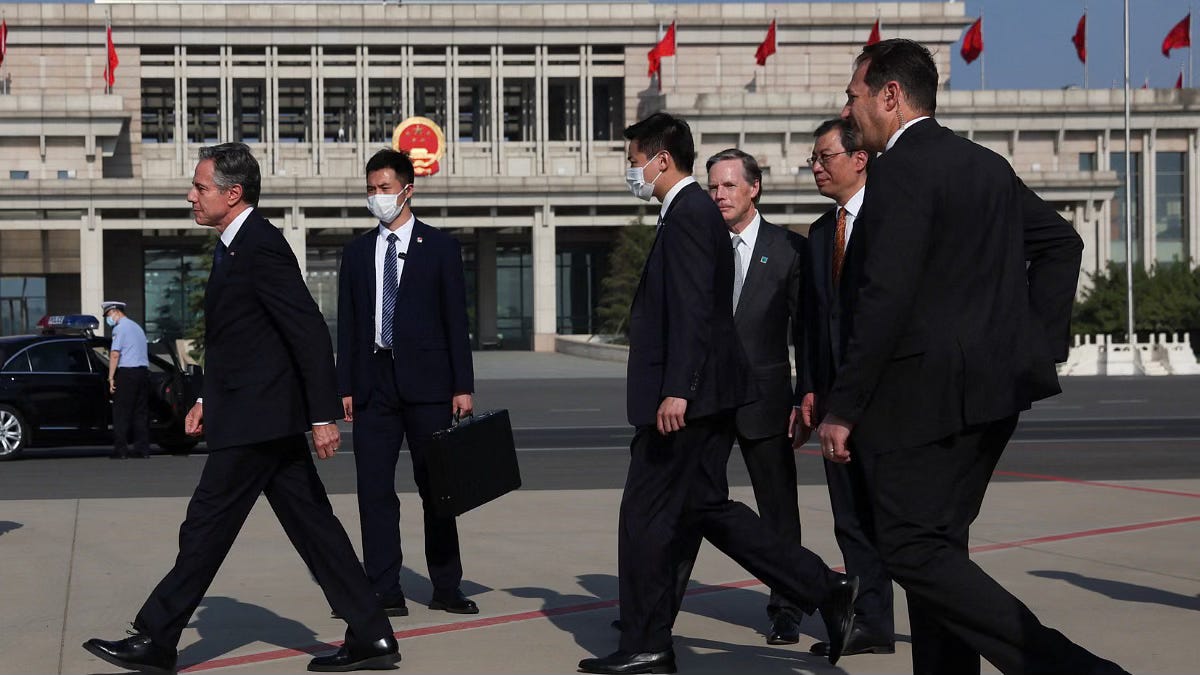Blinken FIVE
China to make solemn representations and demands during Blinken’s visit on Taiwan, South China Sea and technology restriction
Blinken Five include Taiwan, South China Sea and technology restriction
By Global Times
Ahead of the upcoming visit of the US Secretary of State Antony Blinken to China this week, a senior official from China's Foreign Ministry introduced five major targets that China is focusing on during this visit, making solemn representations and demands on matters s…



